Description
ABSTRACT
Legal Liability of Online Platforms in Nigeria and the European Union
Olubukola Olugasa* and Tobenna Nwosu**
The inevitability of strangers making connections over the internet for commercial, social, or less obvious reasons in an increasingly mobile world, implicates untold dangers to the data on which these connections are built, if not to the person-hood of the data-holder. When harm should strike, occasioning tangible loss, what shall be the recourse of a data-holder (a term applicable to most humans in modern society)? What duties have been imposed on the platforms that facilitate connections and transactions among humans, between an individual and a business, and between businesses? With the aid, among others, of situational analogies and primary legislation at home (the National Information Technology Development Agency’s Data Protection Regulation, 2019) and abroad (the EU Directive on Electronic Commerce, the US Digital Millennium Copyright Act, the UK Data Protection Regulation, and the European Union General Data Protection Regulation), this article delineates the extent to which all the parties in a digital connection are responsible for a wide range of data infractions.
Keywords: Internet, Information, Data Protection, Online Connection, Regulations.
INTRODUCTION
Online platforms are ‘intermediaries’ to the extent they connect parties or enable transactions between parties on the internet. An intermediary will host, transmit, and index data originated by third parties on the web. Examples are internet service providers, search engines, e-commerce platforms, internet payment systems, and publishing or broadcasting platforms that do not own the data being published or broadcast.1 Liability is the degree in which the state, the courts, or any other supervisory body may (upon the complaint or petition of a user) hold an intermediary sanctionable for unlawful, harmful, or negligent occurrences to the user’s personal data: basic identity information (name, email address, physical address, phone number, credit card details, ID number and photographs); web data (location, IP address, tags, cookie data); biometric data, political opinions, racial or ethnic data, and health and genetic data. Infringement of copyright, spamming/phishing, cybercrime, and privacy protection are the more common issues giving rise to intermediary liability.
* MA, LL.M, BL, PhD. Associate Professor, Babcock University School of Law, Visiting Scholar at
the Center for Law, Technology, and Society (Common Law Section), University of Ottawa.
** LL.B (Hons) (Babcock), BL. Associate at Alliance Law Firm.
- Rebecca Mackinnon, Elonnai Hickok, Allon Bar, Hae-in Lim, ‘Fostering Freedom Online: The Role of Internet Intermediaries‘ (UNESCO, 2015) 10-13 accessed 22 October 2019.

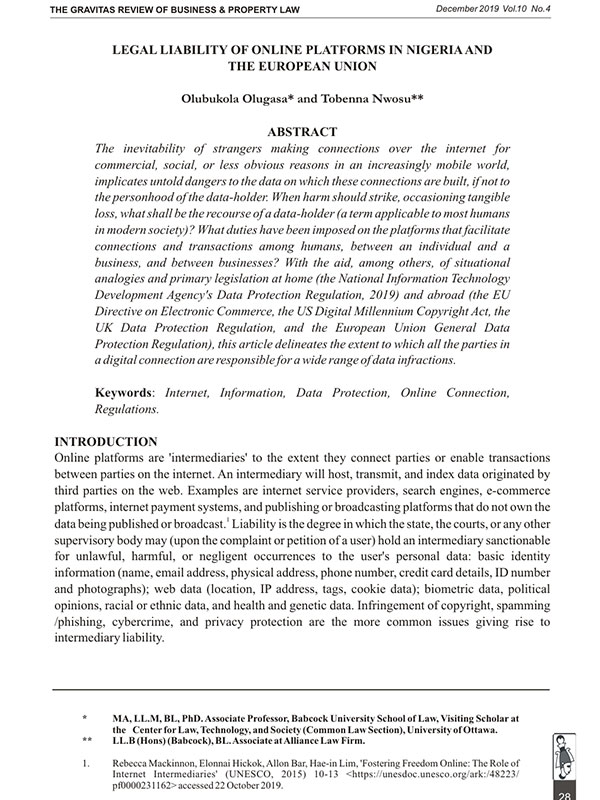
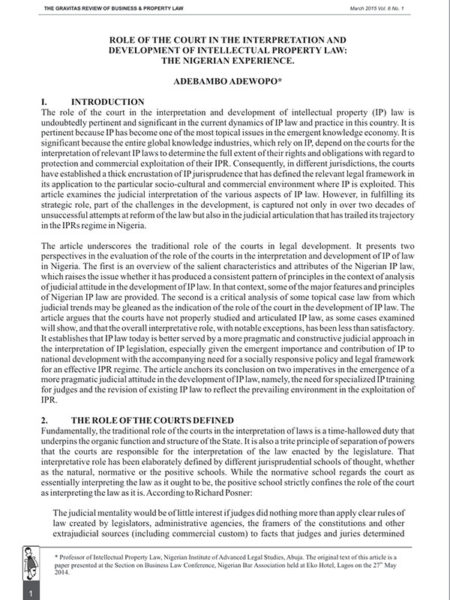
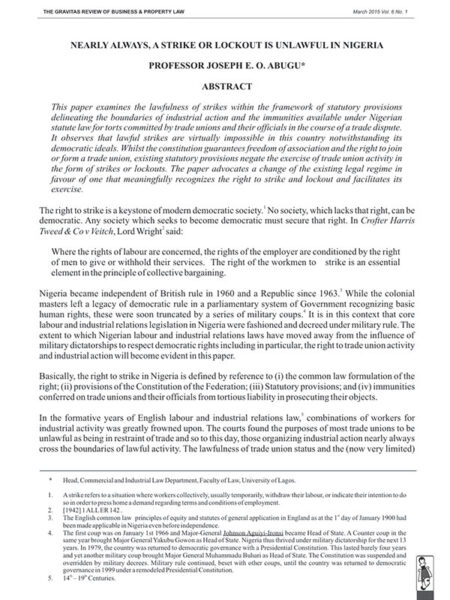
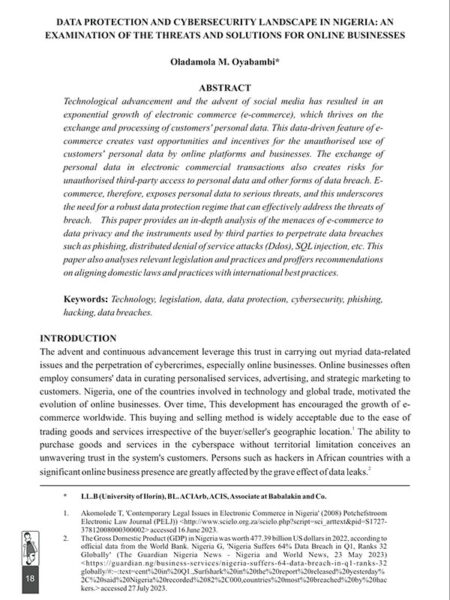
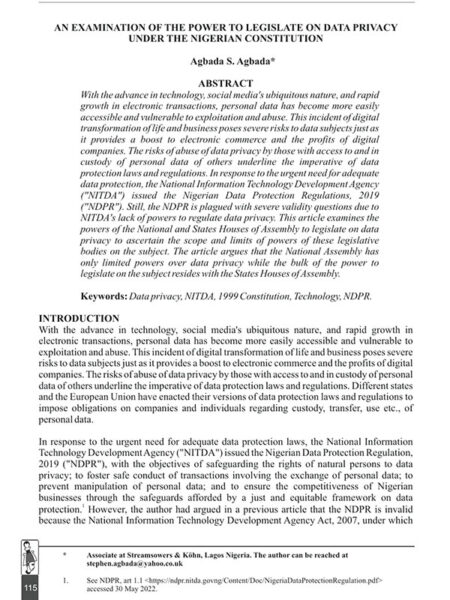


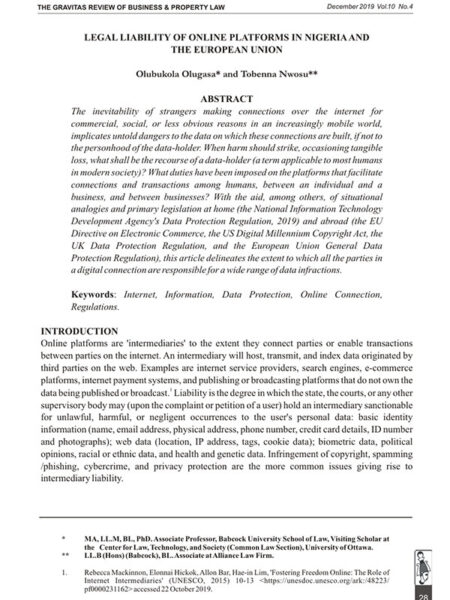
Reviews
There are no reviews yet.